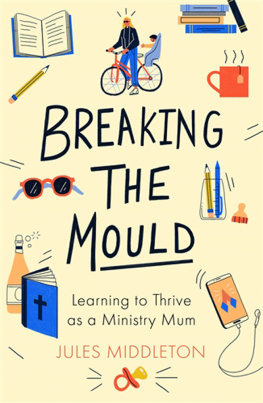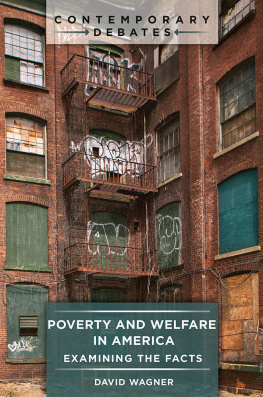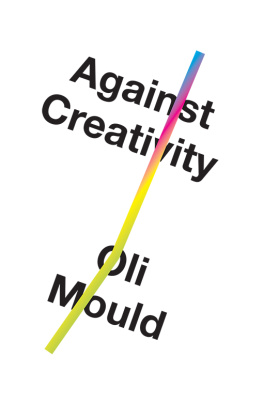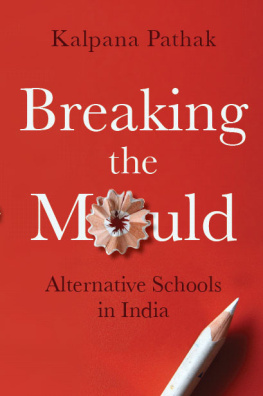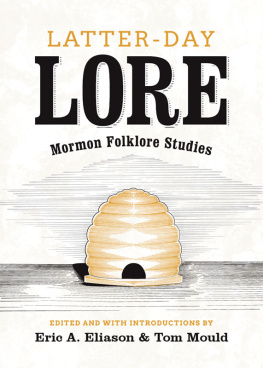This book is a publication of
Indiana University Press
Office of Scholarly Publishing
Herman B Wells Library 350
1320 East 10th Street
Bloomington, Indiana 47405 USA
iupress.indiana.edu
2020 by Tom Mould
All rights reserved
No part of this book may be reproduced or utilized in any form or by any means, electronic or mechanical, including photocopying and recording, or by any information storage and retrieval system, without permission in writing from the publisher. The paper used in this publication meets the minimum requirements of the American National Standard for Information SciencesPermanence of Paper for Printed Library Materials, ANSI Z39.481992.
Manufactured in the United States of America
Cataloging information is available from the Library of Congress.
978-0-253-04802-8 (cloth)
978-0-253-04803-5 (paperback)
978-0-253-04806-6 (ebook)
123452423222120
AS PART OF A COLLABORATIVE research project, this book owes a great debt to scores of people, first among them the incredibly generous and trusting people who sat down to talk about their views and experiences with public assistance. My debt to grocery store cashiers, aid providers, volunteers, students, politicians, and community members is immense; all of these men and women were willing to share their views on a sensitive issue that would inevitably be popular with some of their peers and deeply unpopular with others. That debt is multiplied exponentially for the aid recipients who were willing to face the stigma of poverty and welfare in this country and share deeply personal stories of challenges that for many of them continue to this day.
My deep gratitude follows quickly to my coresearchers on this project, beginning with the community partners who added this project to their already overstuffed workload. In Alamance County, there were Linda Allison, Latawnya Hall, Susan Osborne, and Michelle Poole at the Department of Social Services; Nikki Ratliff at the Burlington Housing Authority; first Hunter Thompson and then Kim Crawford at Allied Churches; Tracy Salisbury at the Open Door Clinic; Heidi Norwick and April Durr with the United Way; and Lynn Inman, who works as a housing and mental health specialist. Partners in Guilford County included Robin Britt, Angela Ben-Zekry, Maria Stevens, Brad Huffstetler, Jaye Webb, Wanda Ford, Deborah Willoughby, and Katina Madison at Guilford Child Development; and Sarah Glover, Jennifer Ruppe, and Fanta Dorley at the United Way.
Integral to the research were the Elon University students who conducted interviews: in Alamance County, Jamie Albright, Kristen Bryar, Heather Cassano, Kit Connor, Jessica Elizondo, Greg Honan, Hannah Hyatt, Chelsea McQueen, Caroline Miller, Sophie Rupp, Alex Sherry, Chessa Simpson, Gloria So, Laura Lee Sturm, and Ben Waldon; and in Guilford County, Sara Blough, Jamie Fleishman, Whittni Holland, Tim Kitslaar, Shenandoah Lucero-Keniston, Citlaly Mora-Hernandez, Olivia Musgrave, Osca Opoku, Alyssa Potter, Jeremy Revelise, Anna Rice, Noah Rossen, Vashti Shiwmangal, Rihana Spinner, and Emily Thomas. Their commitment to careful, ethical fieldwork was inspiring and invaluable.
Aware of my research, numerous family, friends, students, and colleagues forwarded me relevant articles, citations, and examples of welfare lore from social media. The book is stronger for their contributions, and , on social media, would not have existed without input from the following people: Bill Barnett, Brooke Barnett, Lily Barnett-Mould, Ben Bridges, Mike Carignan, Hiram Cutie, Eric Eliason, Jessica Elizondo, Di Goldstein, Greg Honan, Jeremy Hunt, Dorry Noyes, and Eleanor Walden. I also benefitted greatly from conversations about relevant theories, sources, and approaches to my work from my colleagues at Elon University, including Steve Bednar, Cindy Fair, Alexis Franzese, Tom Henricks, Jason Husser, Barbara Miller, Aunchalee Palmquist, Ann Cahill, and Toddie Peters, as well as my folklore colleagues scattered across the country, particularly Ray Cashman, Eric Eliason, Bill Ellis, Di Goldstein, Dorry Noyes, Henry Glassie, Pravina Shukla, Jason Jackson, Carl Lindahl, Elliott Oring, Leonard Primiano, Michael Dylan Foster, Lisa Gilman, Greg Kelly, Jennifer Schacker, Caroline Miller, and Ben Bridges. In libraries and archives close to home and across the country, there were a number of incredibly knowledgeable and generous folks who helped me track down materials as diverse as Reagans campaign speeches, welfare jokes from the 1970s, and the owner of a race horse named Welfare Queen: Pauline Cox at the Memorial University Folklore and Language Archive; Yasmin Golan at the University of California, Berkeley, Folklore Archives; Carrie Schwier at the Indiana University Archives; Jim Sam at the Hoover Institution Library and Archives; Barbara Truesdell at the Center for Documentary Research and Practice; and Teresa LePors, Jamane Yeager, and Lynn Melchor at Elon Universitys Belk Library. Special thanks to Teresa LePors, who was indefatigable no matter my question and more tenacious than I could have hoped; and to her friend Beverly Brown, who helped scour online horse racing databases in my quest to determine the inspiration for the first known use of welfare queen in print. Deep thanks also to the folks at IU Press and Amnet in helping get this book into print, particularly Gary Dunham, Leigh McLennon, Nancy Lightfoot, David Hulsey, Rachel Stern, Rachel Rosolina, and Stephen Williams.
Last but hardly least, there is my family: Lucille Mould; Rob, Laura, Caroline, and Charlie Mould; Diana, Dave, and Elizabeth Adams; Rob Kleinsteuber; my incredible cadre of in-laws; and my father, Bill Mould, who died during the fieldwork for this book but whose love, kindness, wisdom, and humor I carry with me always. Finally, there are Lily and Jack, who make life so fun and surprising; and Brooke, who makes it all worthwhile.
OVERTHROWING
THE QUEEN




